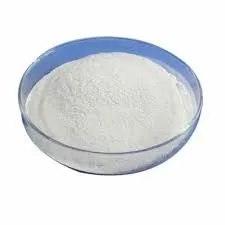
Nov . 17, 2024 03:24 Back to list
buy hydroxyethyl cellulose
A Comprehensive Guide to Buying Hydroxyethyl Cellulose
Hydroxyethyl cellulose (HEC) is a versatile, non-ionic cellulose ether that has gained significant popularity in various industries, including pharmaceuticals, cosmetics, and construction. As a thickening agent, stabilizer, and film-forming agent, HEC is widely used in products such as lotions, shampoos, adhesives, and paints. With its increasing demand, knowing how to select and purchase high-quality hydroxyethyl cellulose is essential for both manufacturers and consumers. This article aims to provide guidance on buying HEC, ensuring you make an informed choice.
Understanding Hydroxyethyl Cellulose
Before diving into the buying process, it’s crucial to understand what hydroxyethyl cellulose is. Derived from natural cellulose, HEC is modified through ethylene oxide treatment. This modification enhances its solubility in water and alters its rheological properties. HEC is known for its ability to improve the viscosity and texture of formulations, making it a favored ingredient across various applications.
Key Considerations When Buying HEC
1. Grade and Quality Different grades of hydroxyethyl cellulose exist, each tailored for specific applications. When purchasing HEC, assess the intended use—whether for cosmetic formulations, food processing, or construction materials. Higher purity grades are often required for pharmaceutical applications, while other grades might suffice for industrial use. Look for suppliers providing detailed product specifications and certifications to guarantee quality.
2. Source and Supplier Reputation Research the supplier’s reputation in the market. Reliable suppliers often provide technical support, comprehensive product data sheets, and third-party testing results. Customer reviews and testimonials can also provide insight into the supplier's reliability. Opting for suppliers with established relationships and a history of delivering quality products can minimize risks associated with purchasing substandard materials.
buy hydroxyethyl cellulose

3. Price and Packaging While price shouldn’t be the only criterion for purchasing HEC, it’s essential to ensure that it aligns with your budget. Compare prices from various suppliers, considering the quality and grade of HEC offered. Additionally, packaging size can affect the overall cost. Depending on your needs, bulk purchasing might yield cost savings, while smaller packages could be beneficial for trial purposes.
4. Solubility and Viscosity Characteristics Hydroxyethyl cellulose comes in various viscosity grades. Depending on the application, you might require a specific viscosity level. Suppliers usually categorize their products by viscosity range, so ensure that you choose HEC that meets your formulation needs.
5. Regulatory Compliance Depending on your location and intended use of HEC, it may be subject to various regulatory standards. For pharmaceutical and food grade applications, compliance with local and international regulations, such as FDA or EU standards, is crucial. Always verify that the supplier provides necessary documentation to ensure that the HEC complies with relevant guidelines.
Where to Buy Hydroxyethyl Cellulose
There are several avenues to purchase hydroxyethyl cellulose. Online marketplaces and specialized chemical distributors are excellent places to start. Many suppliers offer detailed catalogs on their websites, allowing for easy comparison between products. Additionally, trade shows and industry events can provide opportunities to meet suppliers, evaluate products, and gain insights into emerging trends in HEC applications.
Conclusion
Buying hydroxyethyl cellulose requires careful consideration of several factors to ensure that you select the right product for your needs. By understanding the different grades available, evaluating supplier reputation, and paying attention to compliance and price, you can confidently make informed purchasing decisions. With its remarkable properties and broad applications, hydroxyethyl cellulose is an important ingredient in many industries, making it worthwhile to invest time in sourcing quality products.
-
Versatile Hpmc Uses in Different Industries
NewsJun.19,2025
-
Redispersible Powder's Role in Enhancing Durability of Construction Products
NewsJun.19,2025
-
Hydroxyethyl Cellulose Applications Driving Green Industrial Processes
NewsJun.19,2025
-
Exploring Different Redispersible Polymer Powder
NewsJun.19,2025
-
Choosing the Right Mortar Bonding Agent
NewsJun.19,2025
-
Applications and Significance of China Hpmc in Modern Industries
NewsJun.19,2025







